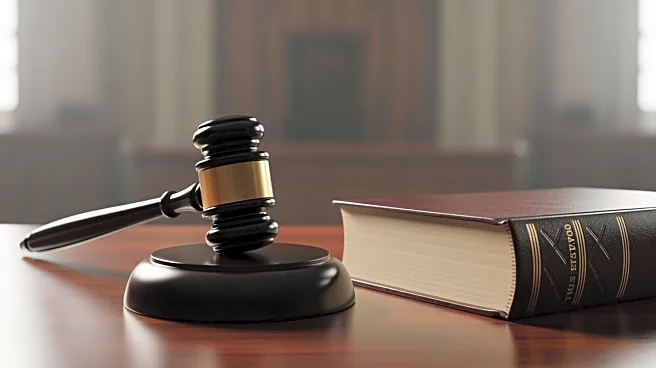What's Happening?
Federal prosecutors have defended their decision to pursue the death penalty in the case against Luigi Mangione, who is accused of murdering UnitedHealthcare CEO Brian Thompson. The defense has argued that public comments made by Attorney General Pam
Bondi and President Trump have prejudiced Mangione's right to a fair trial. Bondi's remarks on Fox News and social media posts have been cited by Mangione's lawyers as reasons to dismiss the charges or rule out capital punishment. Prosecutors countered that pretrial publicity does not constitute a constitutional defect and that Bondi's comments do not affect the legal proceedings. Mangione, who has pleaded not guilty, is set to appear in court for a pre-trial hearing on December 1.
Why It's Important?
The case highlights the tension between public commentary by high-profile officials and the judicial process. The defense's argument that Bondi's comments were politically motivated raises questions about the influence of politics on legal decisions. The pursuit of the death penalty in this case could set a precedent for how public statements by government officials are considered in legal proceedings. Additionally, the case has sparked a broader debate about healthcare costs in the U.S., as Thompson's murder occurred before a major UnitedHealthcare conference. The outcome of this case could impact public perception of the justice system's impartiality and the role of political figures in legal matters.
What's Next?
Mangione's next court appearance is scheduled for December 1, where his lawyers will continue to challenge the admissibility of evidence and the pursuit of the death penalty. The court's decision on these matters could influence future cases involving high-profile defendants and public commentary. If the defense succeeds in suppressing evidence or dismissing charges, it may lead to increased scrutiny of prosecutorial practices and the impact of political statements on legal proceedings. The case will continue to be closely watched by legal experts and the public, given its implications for the justice system and political influence.
















